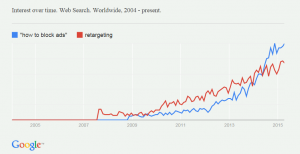Refrigerator Broken? Try Restarting the Router
If you asked people twenty years ago if they believed that we would have refrigerators and salt shakers with internet connections, or always-listening devices like the Amazon Echo that can control these devices, they would have thought you were talking about science fiction. They would also probably be terrified if you told them that everything they do, every website that they visit, every location they visit, is tracked and recorded. They would be affixing their tinfoil hats if they found out that their refrigerator may be sending data about their food preferences to advertisers to create tailored advertisements.
This is quickly becoming a reality. The “Internet of Things,” the connection of previously unconnected devices to the Internet such that they can communicate with each other and central hubs, is an advertiser’s and data collector’s dream. We already have tailored advertisements that track our searches and cookies to feed us ads that include products we may be interested in based on this data. With the growth of the Internet of Things, the data available to advertisers will continue to increase exponentially.
An advertiser who wants to target a very specific demographic, for example, males age 18-35 who are lactose intolerant and have an interest in hip hop, could potentially find users matching this description through the treasure trove of data available among the Internet of Things. They could see that an individual had bought lactase pills or almond milk, and also made use of their Spotify data to find their music preferences if they really wanted to market their milk-free, hip hop related product.
If we reach a point where almost all of the things that we interact with are connected to the Internet, there would be almost nothing stopping data aggregators and advertisers from knowing everything about us. The privacy implications of the Internet of Things are the scariest thing for me. It seems that we are like boiling frogs, unaware of the gradual rise of our privacy being eroded until it’s too late.
At the individual level it seems impossible to stop the trend of privacy invasion. As the Internet of Things progresses, I think it’s up to governments to regulate the ways in which the data generated can be used.

robjmal670
October 3, 2017 @ 12:12 am
I agree with what you said Sam: the government should and needs to play a larger role in this. After all, they are one of the few entities that have the ability to control companies (to a certain extent). However, it seems that the government has something to gain from this. For instance, politicians could use this data to gerrymander more effectively. Bias and partisanship is an issue, but it would be better to have some safety measures for our data instilled by the government rather than no safety measures.
Jim Waldo
October 6, 2017 @ 2:42 pm
Some great observations. We will talk about privacy more later in the semester; it is a topic I’ve been involved with since the “Embedded Everywhere” report. That report had as one of its recommendations that thought be given to the privacy implications of the Internet of Things (I was the one who insisted on that), and that led to a major study on privacy by the National Academies (which I chaired).
While I think getting a handle on the privacy implications is important, I’m also unsure of what the right approach should be. While targeted ads are creepy, those serving those ads point out that by using the data they have about you, you avoid seeing all kinds of ads that you aren’t interested in, so the amount of cognitive junk is decreased. All that data is leading to a revolution in the social sciences, which wouldn’t be possible if the data weren’t being gathered.
Like lots of areas having to do with emerging technology, there doesn’t seem to be a simple answer. But there are lots of trade-offs, which we need to think about rather than just let happen. Glad to see that you are asking the right questions; that is the most important first step.
profsmith
October 8, 2017 @ 4:39 pm
Very well said, Sam.